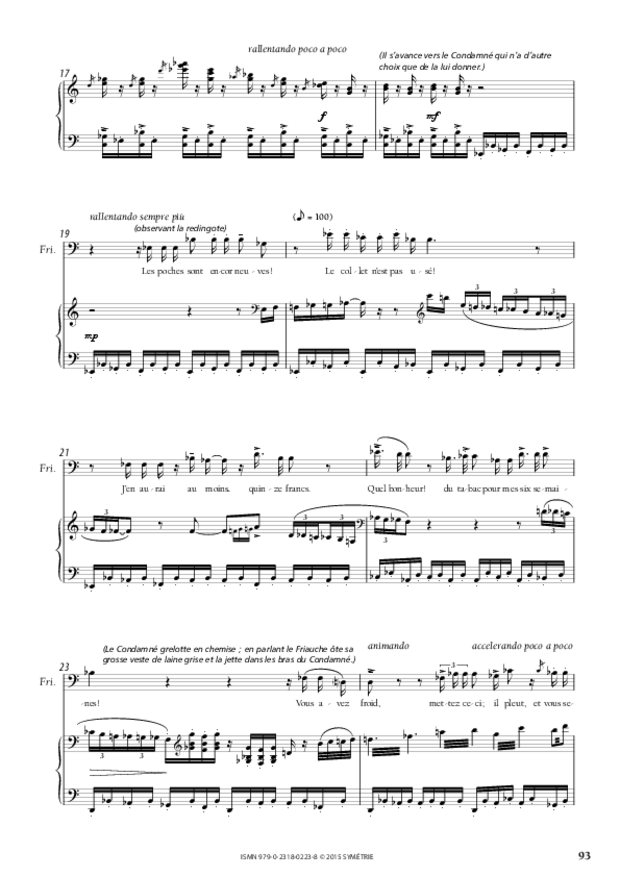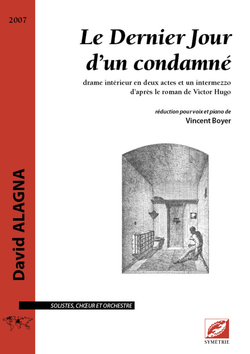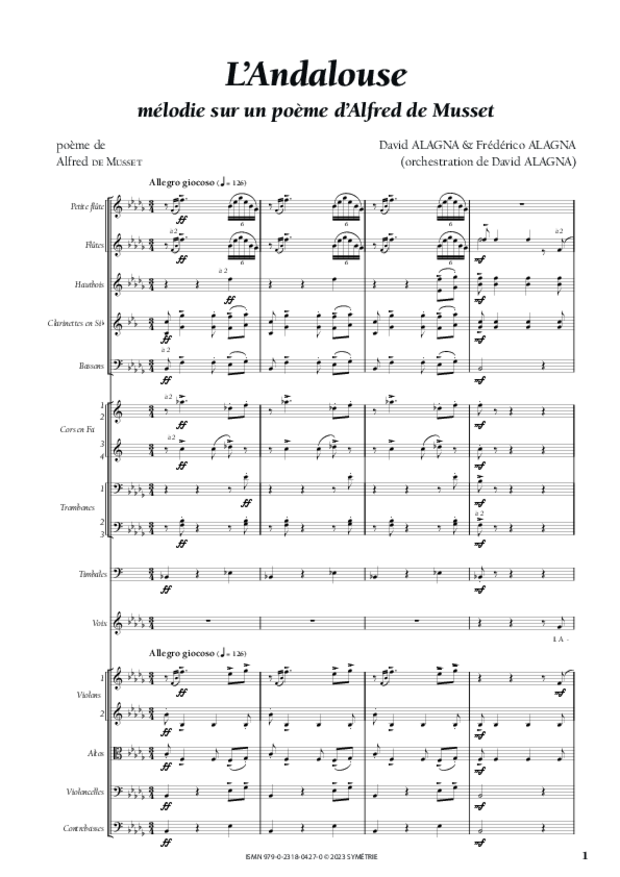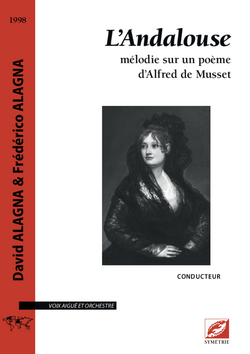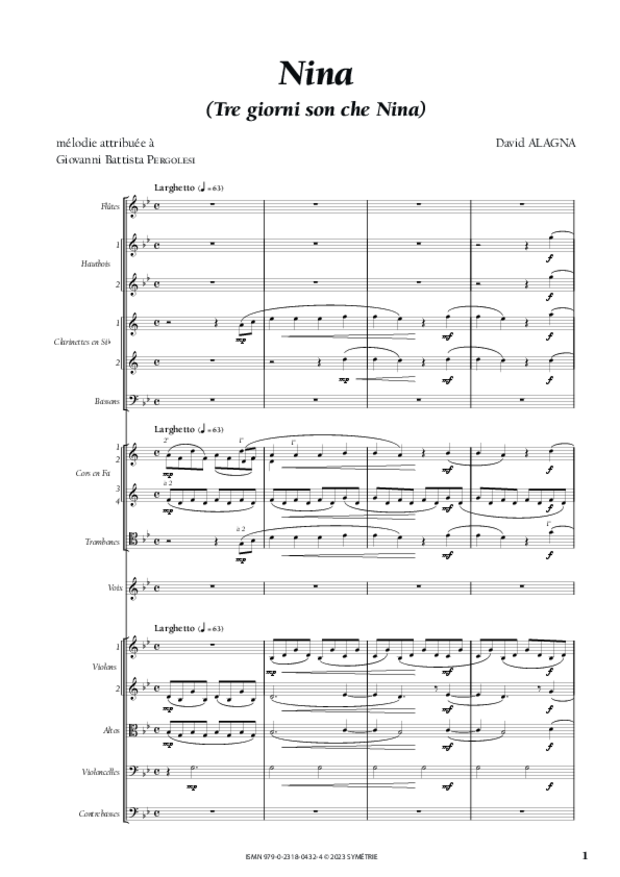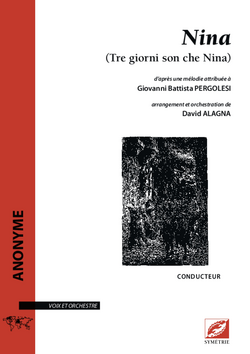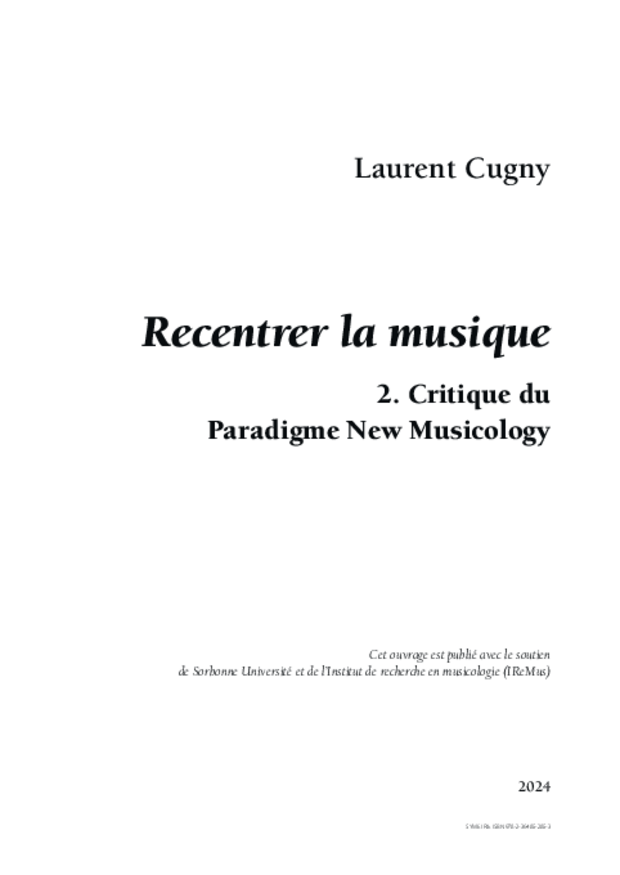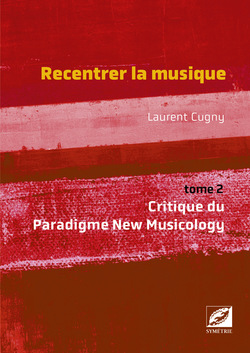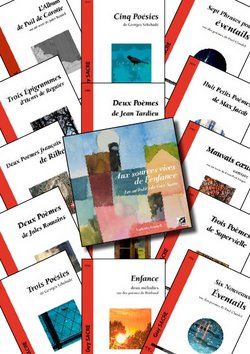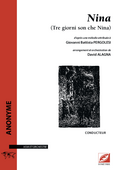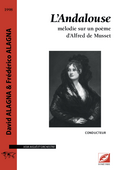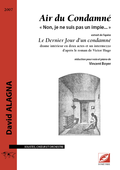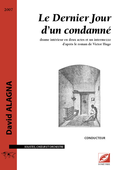Born in France of Sicilian parents, David Alagna has been influenced from his early age by French popular music and Sicilian traditional music, then by opera. He has an instinctive passion for the popular musical instruments, for the mixture of styles and the association of rustic and classical colours. By descent, he first studied guitar, thanks to the traditional family learning that gave him a solid cultural heritage after many years of study. He carried on his musical studies and kept on learning the guitar as an autodidact; this instrument in particular led him to jazz music, of which he is a performer, arranger and composer. In parallel he perfected his approach of jazz or modern harmony, developed his taste for improvisation as well as the study of classical orchestration.
David Alagna mostly devotes his time to write for the voice, with in particular Le Dernier Jour d’un condamné (The Last Day of a Condemned Man), Poésies non choisies (Unchosen Poems) – a set of songs for piano and voice by David and Frédérico Alagna on classical authors’ poems – or a musical and theatrical adaptation of Gluck’s opera Orphée et Eurydice.
In varied music styles (classical, jazz, traditional or modern pop), David Alagna is also an arranger and a performer, as in Sérénades (Deutsche Grammophon), a collection album for voices and two guitars of opera arias transcriptions and French, Italian and Neapolitan songs. He is also a stage director and designer. He directed I Pagliacci by Leoncavallo at the Santander Festival (with revivals at the Bilbao Opera and the Teatro Filarmonico in Verona), The Barber of Seville by Rossini at the Giessen Opera for which he also designed the costumes. In 2003 he directed the world-premiere of the French original and complete version of Cyrano de Bergerac by Franco Alfano for the Radio-France – Montpellier Festival (DVD Deutsche Grammophon). David Alagna also directed Werther by Massenet at the Teatro Regio in Torino and adapted Orphée et Eurydice by Gluck for the Teatro Comunale in Bologne then for the Corum in Montpellier.
Born in France of Sicilian parents, David has been influ- enced from an early age by French popular music and traditional Sicilian music, and then by lyrical music in general. He has an instinctive passion for popular instruments, for mixing styles and combining rustic and classical timbres. By descent, he first studied the guitar as part of the traditional family apprenticeship, from which he received the solid cultural heritage after several years’ training. He pursued his musical studies and guitar playing as self-taught apprentices, with the instrument leading him in particular towards jazz music, through which they quickly realised their potential as performers, arrangers and composers. At the same time, he perfected his approach to jazz and modern harmony, developed his taste for improvisation and studied classical orchestration.
David Alagna has devoted himself in particular to composing lyrical works, including Le Dernier Jour d’un condamné (The Last Day of a Man sentenced to Death), Poésies non choisies (Unselected Poems) – a collection of songs for piano and voice by David and Frédérico Alagna based on poems by classical authors – and a musical and theatrical adaptation of Gluck’s opera Orphée et Eurydice.
David Alagna is also an arranger and a performer in a variety of musical styles (classical, jazz, traditional and modern pop), as on Sérénades, an album for voice and two guitars (Deutsche Grammophon) featuring transcriptions of French, Italian and Neapolitan opera arias and melodies. He is also stage and set designers, having directed Leoncavallo’s I Pagliacci at the Santander Festival (revived at the Bilbao Opera and the Verona Philharmonic Theatre), and Rossini’s The Barber of Seville at the Giessen Opera, a production for which he also designed the costumes. 2003 saw the world premiere of the original and complete French version of Cyrano de Bergerac by Franco Alfano for the Festival de Radio- France – Montpellier (DVD Deutsche Grammophon). David Alagna also directed Massenet’s Werther at the Teatro Regio in Turin and adapted Gluck’s Orphée et Eurydice for the Teatro comunale in Bologna and the Corum in Montpellier.
In 2020, to mark the centenary of the birth of Pope John Paul II, David Alagna composed the oratorio San Giovanni Paolo II, based on the original Italian text of Trittico Romano, John Paul II’s last poetic work, in collaboration with the Vatican publishing house. Due to the international lockdown imposed during the Covid pandemic, the work will be created online in episodes broadcast live on social networks, and will become the first serial-opera, a lyrical work produced in the style of a television series.
Publications
Format bibliographique à copier
Alagna, David & Alagna, Frédérico. L’Andalouse, mélodie sur un poème d’Alfred de Musset, Symétrie, 2023, 20 p.Alagna, David. L’Andalouse, mélodie sur un poème d’Alfred de Musset, Symétrie, 2023.
Alagna, David. Nina – Tre giorni son che Nina, Symétrie, 2023, 46 p.
Alagna, David. Air du Condamné, « Non, je ne suis pas un impie… », Symétrie, 2015, 10 p.
Alagna, David, Alagna, Roberto & Alagna, Frédérico (livret). Le Dernier Jour d’un condamné, drame intérieur en deux actes et un intermezzo d’après le roman de Victor Hugo, Symétrie, 2015, 154 p.
Alagna, David, Alagna, Roberto & Alagna, Frédérico (livret). Le Dernier Jour d’un condamné, opéra en deux actes et un intermezzo, Symétrie, 2007, 256 p.
. Nina – Tre giorni son che Nina, arrangement de David Alagna, Symétrie, 2023, 10 p.
